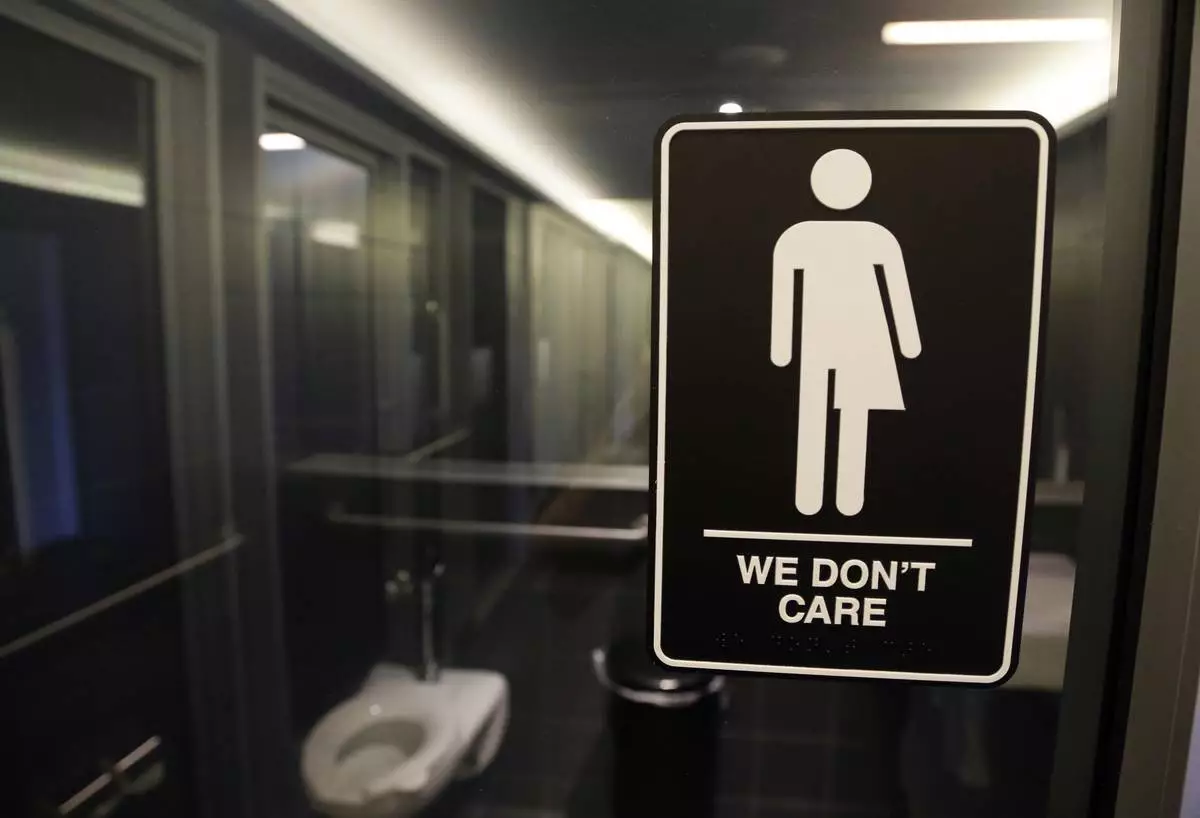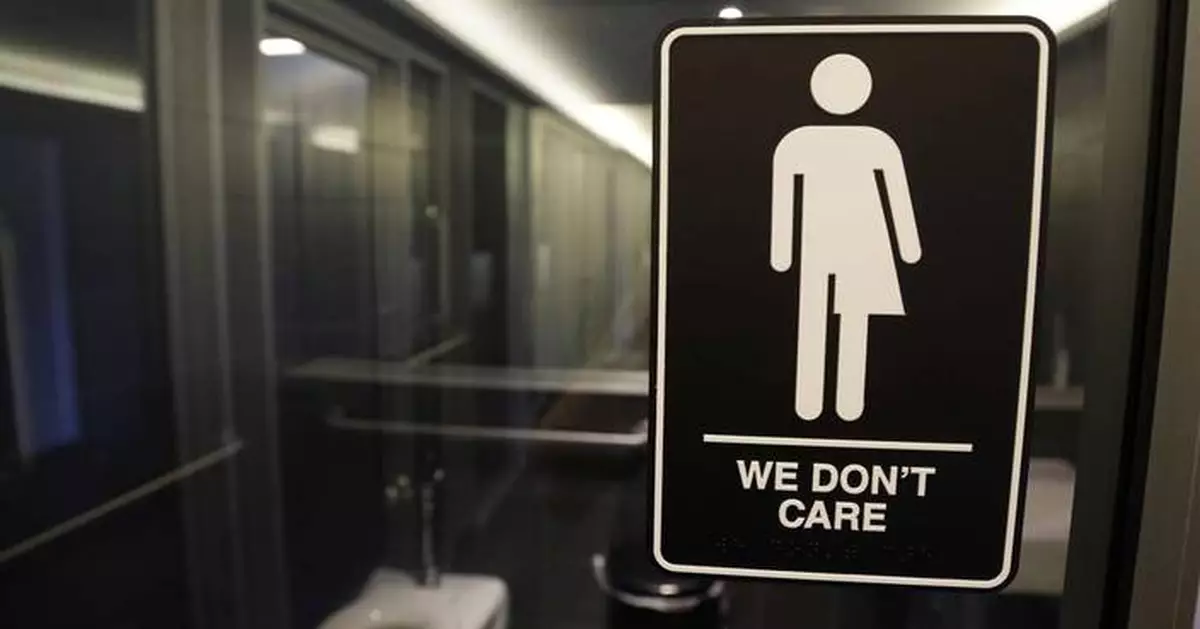COLUMBUS, Ohio (AP) — The Ohio Senate on Wednesday approved a ban on transgender students using bathrooms that fit their gender identities and sent the measure to Republican Gov. Mike DeWine.
The Republican-backed bill applies to public K-12 schools and institutions of higher education. It requires the schools to designate separate bathrooms, locker rooms and overnight accommodations “for the exclusive use” of either males and females, based on one's gender assigned at or near birth, in both school buildings and facilities used for a school-sponsored event.
The legislation would not apply to school employees, emergencies or people helping young children or those with disabilities, and schools would still be able to provide single-use and family bathroom facilities.
State Sen. Jerry Cirino, a Kirtland Republican, said the bill “is about safety and security.”
The ACLU of Ohio urged the governor not to sign the measure, which it condemned as a violation of the right of privacy of LGBTQ+ Ohioans that will make them less safe.
“If allowed to go into effect, SB 104 will create unsafe environments for trans and gender non-conforming individuals of all ages," Jocelyn Rosnick, the group's policy director, said in a statement. "This bill ignores the material reality that transgender people endure higher rates of sexual violence and assaults, particularly while using public restrooms, than people who are not transgender."
The Center for Christian Virtue commended legislators for passing the bill and called on DeWine to sign it. The governor has said he's inclined to sign the bill, but will conduct a legal review first.
“Today is a huge victory for children and families in Ohio," CCV Policy Director David Mahan said in a statement. “Amended SB104 is common-sense legislation that will guarantee the only people entering young ladies’ private spaces are female, not men claiming to be female.”
At least 11 states have adopted laws barring transgender girls and women from girls' and women’s bathrooms at public schools, and in some cases other government facilities.
The laws are in effect in Alabama, Arkansas, Florida, Iowa, Kansas, Kentucky, North Dakota, Oklahoma, Tennessee and Utah. A judge’s order putting enforcement on hold is in place in Idaho.
Ohio House Republicans attached the measure to a proposal regarding Ohio’s college credit program for high school students before passing it in June, much to the chagrin of one of the Democratic state senators who had signed on as a co-sponsor.
Sen. Catherine Ingram, of Cincinnati, said she was taking her name off the bill.
Senate Democratic Leader Nickie Antonio said she couldn't believe Republican leaders prioritized the bill on their first day back following the November election.
“There should be no exception to liberty and justice for all, yet here we are telling our children that there are people who are less-than," she said. "This bill is not about bathrooms. It’s about demonizing those who are different, and our children are watching and listening to the fearmongering.”

FILE - Signage hangs outside a restroom at 21c Museum Hotel in Durham, N.C., May 12, 2016. (AP Photo/Gerry Broome, File)










